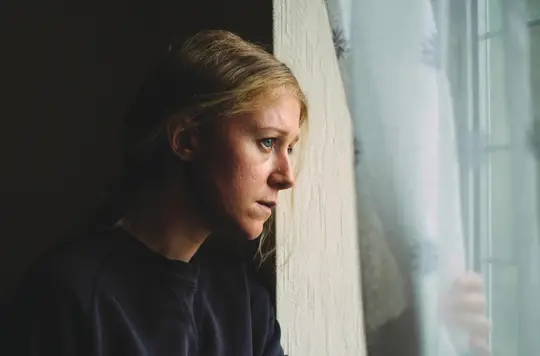8 February 2025
Children’s Mental Health Week: Helping young people express their emotions
Hannah Willis

During Children’s Mental Health Week, Hannah Willis reflects on the importance of understanding how we are made.
This year, Children's Mental Health Week (3 to 9 February) has adopted the theme Know Yourself, Grow Yourself.
For children, coming to know themselves is incredibly important, understanding the variety of emotions they may feel in a day and recognising that they are a natural part of how they are created. As Psalm 139:14 reminds us, we are ‘fearfully and wonderfully made’.
As children learn to fully know themselves, they can manage the spectrum of their emotions, feel comfortable with them, and develop emotional muscles as they take on the highs and lows that life brings.
Encouraging children to express their emotions is the first step to success – for adults and peers to meet them in that place, providing open and safe communication to set them up in their exploration of self.
Psalm 139:23 invites God to ‘search me … know my heart … and know my anxious thoughts’. In the Central and Southern Scotland Division, we have become increasingly aware of the importance of providing tools for children to safely express their emotions within corps and at divisional events.
Last year at Adventure Camp, the whole team had symbols on their lanyards that children could use to express their emotions. As the week went on and tiredness became more of a factor, we observed a huge increase in children using these as well as emotional regulation cards and quiet spaces.
It was great to offer them an inroad into discussing how they were feeling, leading to communication and deeper understanding. I am incredibly excited by the work The Salvation Army is doing through the Starfish mentoring programme.
Starfish mentors are currently in 54 schools around the UK, with further conversations taking place in 51 schools. Children spend on average 32 hours per week in school, therefore it is so right that The Salvation Army is present within this space, showing up for and journeying with children who are struggling.
Furthermore, the schools are hugely grateful to us for providing something that is so desperately needed. I am thrilled that part of my working week involves going into my local primary school as a Starfish mentor. The aim of a mentoring session is to work with a specific child referred by the school for eight weeks.
Within this time, Starfish mentors work with them as they pick through their emotions in a safe space. The sessions are creative and fun, giving a chance to share what is going on inside them and develop healthy ways to navigate their challenges.
We use the Outcome star as a guide to plot where the young people find themselves at the start of their mentoring journeys. The areas we look at include: school, education, learning, how I spend my time, friends and relationships, where I live, feelings and emotions, how I use my time, and healthy lifestyle.
Within the sessions we set goals to help them focus on their hopes for the future. It is fantastic to journey with children as they come to know themselves more and use their inbuilt resources to grow.
Reflect and respond
- Every morning this week, remind yourself that you are fearfully and wonderfully made.
- How much do you communicate with God and others about your emotions? How much do you listen to the children and young people around you about theirs?
- Pray for the children and young people in your corps or community.
- Pray for Starfish mentors journeying with children in schools.
- Register to join the Starfish programme or email childrenyouth@salvationarmy.org.uk for more information.
Written by

Hannah Willis
Divisional Children’s Worker, Central and Southern Scotland Division











